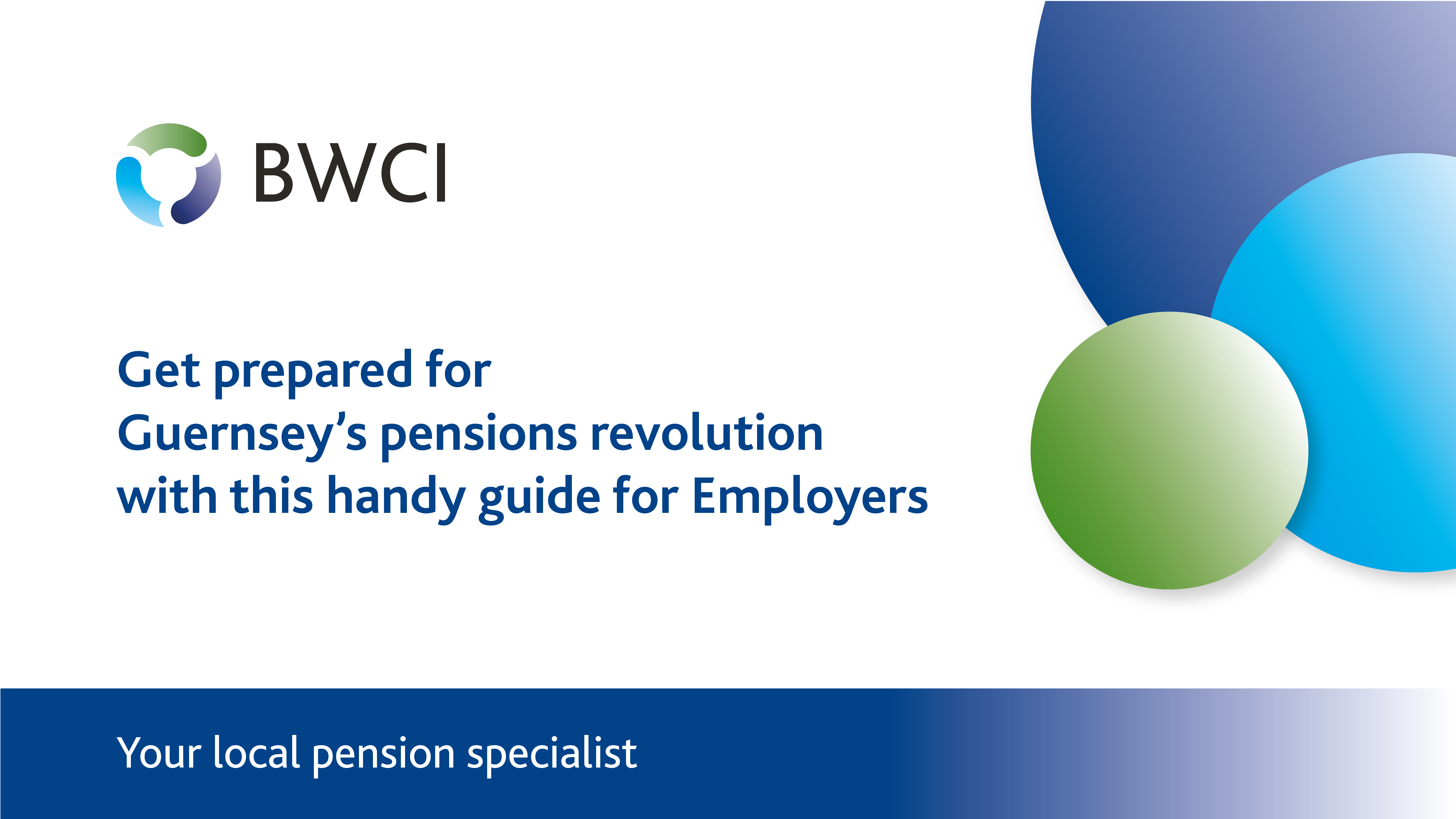
by John Martin
(Please contact John on 01481 728432 or email john.martin@bwcigroup.com
if you wish to discuss this article or anything relating to secondary pensions).
A seismic shift is coming to the local pensions landscape following the States decision to give secondary pensions the go-ahead. The most welcome part is that employers have a choice about which pension scheme to select for their workers.
At BWCI Pension Trustees Limited (“BWCI”), we are trying to raise awareness of what it will all mean. Last month we looked at the secondary pension basics: Why? How? When? Who? And what? This month we wanted to answer some more questions from employers.
In our experience, most people are accepting of the urgent reasons to reform the Guernsey pension system. As our society gets older and we live longer, the ratio of retired people to working people rises, and this puts pressure on the existing States pension arrangements.
The majority of questions are now focusing on the logistics, and the options that employers have.
Will secondary pensions be a burden?
There will be a financial responsibility for employers, but particularly in the early years the contribution requirement from employers is modest. In the launch year, the cost to employers will be 1% of the gross earnings bill. Over the course of 9 years this will rise to 3.5%.
The key aspect is that secondary pensions are automated, so once they are set up through payroll they are good to go. Pension
contributions will be automatically deducted from pay packets every pay period. You will need to change the percentage rates in
accordance with the States requirements.
What does auto-enrolment mean?
Auto-enrolment harnesses the power of inertia. It flips the system from one where you have to opt in, to where you will be automatically enrolled and will have to be proactive if you wish to opt out (if permitted).
Can my workers opt-out?
After being automatically-enrolled into a pension scheme, it might be possible to allow workers to choose to opt out, if they do not wish to start saving for their retirement yet. However, we have seen a trend to having compulsory member of pension schemes to reduce the administration burden on employers and reduce risk.
Can I discourage my employees from joining?
No. There will be financial penalties if employers are found to be putting pressure on employees to opt out.
How far ahead should I plan?
Many employers are already getting ahead and laying the ground for the important changes. Our guidance is that companies should start planning now and indeed many companies have established pension schemes already to help with the recruitment and retention of staff. The States has established a default provider for secondary pensions, but it will be up to employers to select the pension scheme that they think suits their circumstances.
Some employers will want to offer their workforce more control, flexibility and have the pension scheme selected being operating for a number of years . For instance, BWCI has been providing Guernsey corporate pension schemes for over 40 years and we are a trusted pension provider.
What if I already offer employees a pension?
You need to check that your scheme meets at least the new mandatory minimum standards.
What has been the experience of other countries with similar schemes?
This method of enrolling workers in schemes is already well established in countries such as the UK and Australia. In the UK they are called ‘auto-enrolment pensions’ and they have been widely deemed as a resounding success. Auto-enrolment pensions were introduced in 2012 and have encouraged millions of people to save for a happier and richer retirement. Before the scheme was introduced it was anticipated that around a third would opt-out. That was an over estimation because in reality the opt-out level has hovered around 10%.
BWCI Pension Trustees Limited is regulated and licensed by the Guernsey Financial Services Commission under The Regulation of Fiduciaries, Administration Businesses and Company Directors, etc. (Bailiwick of Guernsey) Law, 2020

